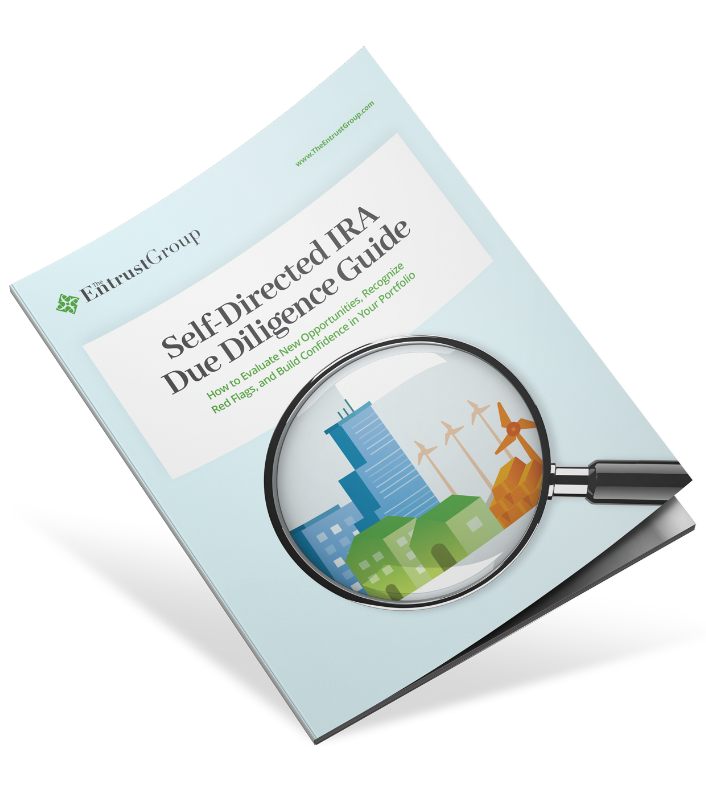Avoid These Common Investment Scams

Estimated reading time: 6 minutes
The data is clear — investment scams are on the rise.
According to the Federal Trade Commission (FTC), consumers lost nearly $10 billion to fraud in 2023. That’s an increase of over 14% compared to 2022.
For certain demographic groups, the picture is even more troubling. A recent AARP report found that the costs of financial elder abuse were much higher than previously estimated, exceeding $28 billion per year. The vast majority of those losses can be attributed to family, friends, and caregivers.
In light of these alarming trends, it’s never been more crucial for individuals to stay informed and vigilant in protecting their finances.
In this article, we will delve into seven of the most common investment scams, highlight red flags during due diligence, and provide actionable steps to safeguard your portfolio. Additionally, we'll explore measures you can take if you suspect you've fallen victim to an investment scam.
Table of Contents
- 7 Common Investment Scams
- Red Flags to Look Out For
- 4 Strategies to Protect Your Portfolio
- 10 Steps to Take if You Suspect an Investment Scam
- Refine Your Due Diligence Skills to Avoid Investment Fraudsters
7 Common Investment Scams
Investment scams are likely as old as investing itself, and scammers continually evolve their tactics to stay ahead of the curve.
Here are seven of the most common investment scams to be aware of:
Ponzi Schemes
Named after 1920s swindler Charles Ponzi, Ponzi schemes promise investors high returns with little or no risk. Returns are paid to earlier investors using funds from newer investors, creating a false appearance of profitability.
Infamously, Bernie Madoff constructed the largest Ponzi scheme in history. 15 years later, authorities are still reckoning with the total impact of his actions. At a minimum, he duped thousands of investors, leading to financial losses in the tens of billions.
Pyramid Schemes
In a pyramid scheme, participants are encouraged to recruit new members, and the returns are based on the recruitment efforts rather than actual investments. As the pyramid grows, it becomes unsustainable, and those at the bottom lose their money.
Pump and Dump Schemes
In a pump-and-dump scheme, investment fraudsters artificially inflate the price of a stock by spreading positive but false information. Once the stock price is artificially boosted, scammers sell off their shares, causing the price to plummet and leaving other investors with significant losses.
Unregistered or Fake Investments
Some scammers may promote investment opportunities that are not registered with regulatory authorities. These could include fake real estate ventures, commodities, or other non-existent opportunities.
Cryptocurrency Scams
Fraudulent schemes within the cryptocurrency space can include fake initial coin offerings (ICOs), Ponzi schemes using digital currencies, or fake exchanges promising high returns.
Fake Advisors or Funds
Scammers may pose as financial advisors or manage fake investment funds, offering professional-sounding advice while misappropriating funds for personal gain.
Advance Fee Fraud
Investors are asked to pay upfront fees for access to an investment opportunity. Once the fee is paid, the scammer disappears, and the promised investment never materializes.
Red Flags to Look Out For
Understanding red flags and warning signs is paramount to steer clear of investment scams. Here are a few key indicators that may signal a potential scam:
- Guaranteed high returns
- Unregistered or unlicensed investments
- Pressure to act quickly
- Unsolicited offers and cold calls
- Lack of transparency in documentation
- Overly complex or vague investment strategies
- Unwillingness to provide references
If something seems too good to be true or raises suspicions, trust your instincts. It doesn’t inherently mean that the opportunity is a scam, though you should investigate further.
4 Strategies to Protect Your Portfolio
While all investments carry some level of fraud risk, employing specific strategies can minimize these concerns. Explore these four crucial approaches to evaluate investment offerings and mitigate fraud risk in your portfolio:
1. Thoroughly Research the Offering
Before jumping into any investment, turn the offering inside and out to ensure you understand it from every angle.
Look for information about the offering’s history, financial health, management team, and any past legal or regulatory issues. Utilize reputable financial news sources, industry publications, and the company's own reports.
Check whether the investment and the company offering it are registered with relevant regulatory authorities. For securities, this may involve verifying registration with the SEC or other applicable regulatory bodies.
Gain a clear understanding of the investment strategy. Evaluate how the company plans to generate returns and the associated risks. Be wary of overly complex strategies or promises of guaranteed profits.
Finally, request and carefully review the company's financial statements. Look for audited financial reports and scrutinize the balance sheet, income statement, and cash flow statement.
2. Ask for References
Today, many won’t try out a sandwich shop unless they have 1,000 positive reviews vouching for their reputation. Shouldn't the same scrutiny apply to your investment choices?
Speak with individuals or entities that have previously invested with the offering. These references can provide valuable information about the investment process, returns, and overall satisfaction. If a company is hesitant to provide references or if the references provided are unwilling to share their experiences, consider walking away.
3. Consult with Trusted Advisors
Seek advice from trusted advisors, especially fiduciaries. These professionals are legally obligated to prioritize your best interests over selling financial products. Building a relationship with your financial institution can also be a strategic move in mitigating fraud, as they are often the first to notice any changes in your account.
4. Monitor Each Investment in Your Portfolio Regularly
Your responsibility doesn't end after adding an investment to your portfolio.
Consistent account monitoring allows you to quickly detect any irregularities or unexpected activities within your portfolio. Unusual transactions, discrepancies in account values, or unauthorized changes should be investigated promptly.
Monitoring investments helps in preventing fraud by identifying potential warning signs before they escalate. Timely detection allows you to take corrective action and prevent further losses.
Carefully review your account statements on a regular basis to ensure that all transactions are legitimate and authorized.

Self-Directed IRA Due Diligence Guide
10 Steps to Take if You Suspect an Investment Scam
If you suspect or confirm that you've fallen victim to an investment scam, taking prompt and strategic actions is crucial. Here are a few steps to consider if you find yourself in this situation:
- Cease Further Payments: If you've been making regular payments to the scammer, immediately stop any additional payments.
- Document Everything: Keep thorough records of all communication, transactions, and relevant documentation related to the scam. This documentation may be useful when reporting the incident to authorities.
- Contact Your Financial Institution: Reach out to your financial institution to report the potential scam. Provide details of the fraudulent activity and inquire about the possibility of freezing or recovering funds.
- Notify Law Enforcement: Report the scam to local law enforcement agencies, providing them with all relevant information. This may include details about the scammer, the fraudulent scheme, and any communication you've had with the scammer.
- File a Complaint with Regulatory Authorities: Lodge a complaint with relevant regulatory bodies such as the SEC or FINRA. These agencies may investigate the matter and take appropriate action.
- Contact Consumer Protection Agencies: Report the scam to consumer protection agencies, such as the FTC. They can provide guidance and may take steps to prevent the scam from affecting others.
- Seek Legal Advice: Consult with an attorney experienced in financial fraud. They can provide guidance on potential legal actions you may take against the scammer or pursue recovery options.
- Stay Informed About Recovery Options: Some victims may be eligible for restitution through government agencies or legal processes.
- Lean on Your Support Networks: Falling victim to a scam can be emotionally distressing; many victims feel ashamed and don’t share their experience with anyone, shouldering the burden on their own. It’s important to recognize that scams happen to millions every year; you’re not alone. Share your experience and thoughts with loved ones, trusted counselors, and support groups like the AARP Fraud Watch Network.
- Optional: Warn Others: If you’re comfortable communicating your experience on social media or other platforms, you may be able to prevent future losses for others.
Refine Your Due Diligence Skills to Avoid Investment Fraudsters
As the financial landscape evolves, so too do scammers’ tactics.
Your commitment to staying informed and vigilant becomes your greatest asset. Continue educating yourself and approaching investments with a discerning eye.
The linchpin of your defense is due diligence. By delving into the legitimacy of an investment, you build a robust defense against potential scams. Thoroughly researching investment opportunities, verifying credentials, and questioning guarantees are pivotal steps.
Download our Due Diligence Guide to learn more about the right questions to ask as you’re evaluating any investment offering. We’ve included specific questions to consider for real estate, private equity, and precious metals opportunities.
To find out more tips to help you avoid IRA fraud, watch a replay of our webinar, Preventing IRA Investment Fraud and Scams.






























0 Comment